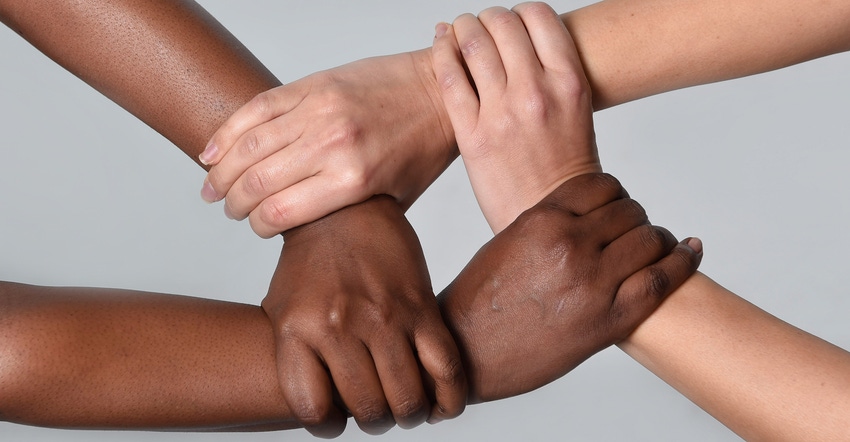June 26, 2020

Like many of you, I am tired.
Tired of COVID-19, tired of looting and burning, tired of the vast unfairness of labeling and assuming the worst.
However, I am white-woman tired.
I am geographically removed from current events. I am a large consumer of news from various sources. I am not on the front lines in health care or emergency response services.
I’ve wrestled with how to write this column for several weeks now and still don’t know if I am going to say the right words. I expect to hear that this topic doesn’t belong in a farm publication. I disagree. It has a place here. Farmers like to brag about how they feed the world. Well, there won’t be a world to feed if farmers and other decent people remain silent.
We, white people, have it good. We take it granted. We are oblivious to this simple fact. We are not the minority.
We are not judged by the color of our skin. White dads do not give their white sons “the talk” about DWW — driving while white. Black dads do. Known as the “driving while black” talk, this is s a rite of passage to make their sons aware of racial profiling that often occurs when they are behind the wheel.
White moms don’t deal with the tears of their white daughters who endure nastiness from people who scrutinize their hair. Black moms do. They’ve experienced the criticism regarding their natural black curly hair. They know how it feels when strangers touch or pat their hair.
Because we are white, for generations we have had some form of a bootstrap that we can reach and pull on — family, opportunity, luck, encouragement. We have not had roadblocks at every attempt — you can’t live here, you can’t shop or eat here, you can’t get a loan here, we don’t hire people like you.
“People like you.”
There’s a latent prejudicial statement.
People like you.
Like what?
The looting, the stealing, the burning we see in news reports are all illegal. Those perpetrators need to pay for that destruction. Yes, they do. Equally pay, regardless of skin color, regardless of circumstances that led them there.
Some are tearing down statutes, denouncing the racism of the honored. And some denounce the memorial platform offered George Floyd, a man with a checkered past littered with crime. At the time of his murder, Mr. Floyd appeared to have reached a stage in his life where he was turning over a new leaf. He was a beloved person to many. Does Floyd deserve the level of public adulation he has received? Maybe just not for him individually, but collectively, for all people of color who have been killed for simply being black or brown?
For too long, we have allowed bigotry to flow unchecked. By saying nothing, by looking the other way, we condone its unfairness.
The Washington Post’s slogan comes to my mind: Democracy dies in darkness.
A bright light has been cast on systematic racism, and a lot of folks still want to cover their eyes. Oh, it doesn’t affect or pertain to me. I live in a rural area. That’s a problem in the cities.
Really? Those are our consumers who live there. You want them to know where their food comes from, yet you don’t want to know anything about them?
Do we apply the don’t-test-and-the-positive-numbers-will-go-down philosophy?
Do we just keep our heads down, ignore it and hope it will go away?
I don’t think we can this time because the voices are many. And that is good.
It’s our turn to listen and to look within.
You May Also Like




